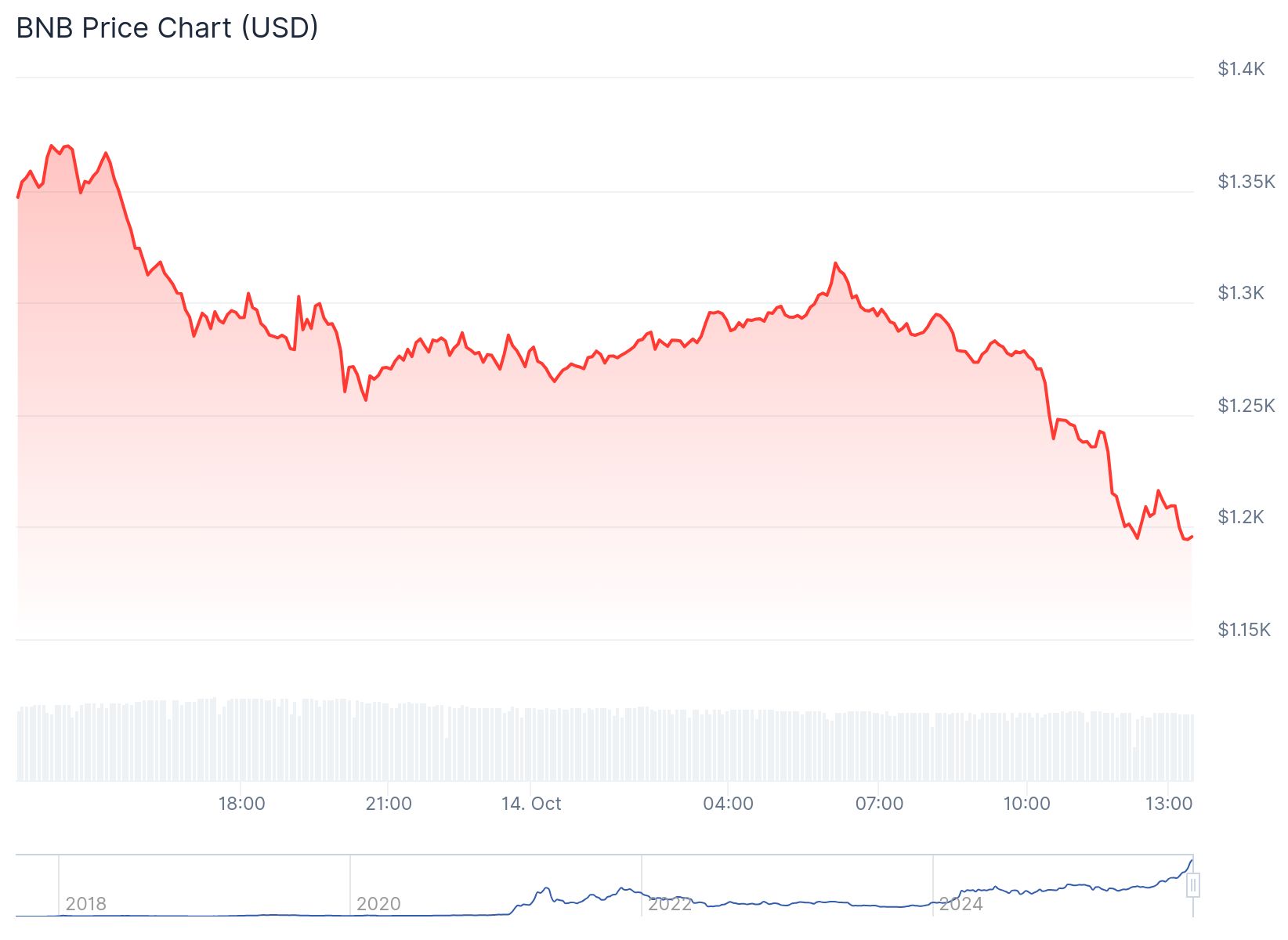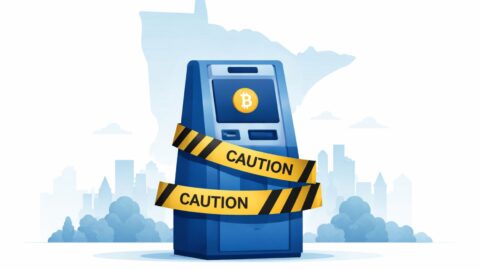BNB Chain has launched a $45 million airdrop to help more than 160,000 traders recover from the largest liquidation event in crypto history.
Key Takeaways
- BNB Chain is distributing $45 million in BNB tokens to over 160,000 addresses affected by the recent market crash.
- The initiative is a response to a historic $20 billion in leveraged position liquidations following U.S. political threats.
- Binance users reported technical failures during the crash, sparking criticism and questions about centralized exchange reliability.
- Binance has also reimbursed an additional $283 million in collateral losses, while denying any major internal failures.
What Happened?
BNB Chain, the blockchain platform linked to Binance, has announced a “reload airdrop” worth $45 million in BNB tokens. This comes after a catastrophic market downturn that wiped out nearly $20 billion in leveraged positions across the cryptocurrency ecosystem. The collapse, largely attributed to geopolitical tensions and threats of tariffs from U.S. President Donald Trump, left thousands of traders nursing heavy losses.
The airdrop began this week and will continue through early November, targeting more than 160,000 eligible wallets. Binance, along with ecosystem partners like PancakeSwap, Trust Wallet, Four Meme, and Binance Wallet, is managing the distribution.
BNB Chain and Four Meme Launch a $45M Reload Airdrop with Ecosystem Partners
— BNB Chain (@BNBCHAIN) October 13, 2025
Recent market conditions have created turbulence across the broader crypto landscape, yet the BNB community continues to build, create and stay engaged through it all. That spirit of resilience is what… pic.twitter.com/4TLUutttEl
Market Crash Unveils System Weaknesses
The market crash that triggered this relief effort was one of the worst single-day events in crypto history. Altcoins like IoTex (IOTX), Enjin (ENJ), and Cosmos (ATOM) briefly showed values near zero on Binance, even though they maintained higher prices elsewhere. Additionally, the synthetic dollar USDe fell to $0.65 on Binance, despite staying near its peg on other platforms.
Several users reported being unable to close positions during peak volatility. One trader, SleeperShadow, claimed that Binance “shut down their system during a major market crash.” Binance later clarified these incidents, citing thin liquidity and outdated limit orders, while noting that forced liquidations on its platform represented only a small portion of the market-wide chaos.
Despite the damage, BNB rebounded to a record high of $1,370, indicating renewed investor interest and confidence. As of now, BNB Chain is hovering around $1,200.

Binance’s Response and Reimbursement Efforts
In the days following the crash, Binance released a public statement detailing the cause of the irregularities. The exchange said its core systems remained operational and explained that some price anomalies were due to recent changes in decimal display settings.
More critically, Binance acknowledged that certain users had their positions liquidated due to the depegging of tokens like USDe, BnSOL, and wBETH used as collateral. In response, it has reimbursed approximately $283 million to affected users, in addition to supporting the $45 million BNB Chain airdrop.
Changpeng Zhao (CZ), Binance’s founder and former CEO, emphasized the randomized yet fair nature of the airdrop, describing it as a tool to restore confidence rather than a bailout.
It was a $44 Million Reload Fund”, air dropped randomly to people who lost money on memes on BNB Chain a few days ago.
— CZ 🔶 BNB (@cz_binance) October 13, 2025
Then someone added $1 million more, and “screwed it up”. 🤣
Protect users. @BNBChain https://t.co/ZgafLDtqm2
What This Means for Centralized Exchanges?
This event has reignited discussions about the risks of centralized platforms. While they offer speed and liquidity, they also expose users to system-wide failures. The Binance incident highlighted how centralized control over trading infrastructure can become a single point of failure, especially during high-stakes market moments.
The airdrop is part of a broader industry shift toward community-based recovery mechanisms. BNB Chain’s initiative sets a precedent for how centralized exchanges might handle crisis management and user trust going forward.
Regulatory Lessons and Industry Outlook
The situation also underscores the need for stronger regulation in crypto trading. Experts point to the importance of implementing robust anti-money laundering (AML) protocols, transparent risk disclosures, and smarter real-time monitoring tools. A more compliance-driven approach could help prevent similar episodes and protect retail investors from the harshest impacts of market volatility.
BNB Chain’s move is not just about compensation. It reflects a growing awareness that decentralized and centralized actors alike need to collaborate for greater system resilience. As the sector matures, recovery plans like these could become a core component of crypto’s risk management architecture.
CoinLaw’s Takeaway
In my experience watching crypto evolve over the years, this event is a textbook case of how fragile trust can be and how powerful swift action is when trying to restore it. The airdrop may not erase all the losses, but it shows that the crypto industry is learning to take responsibility. I found Binance’s $45 million airdrop and the additional $283 million in reimbursements a bold step in the right direction. It also highlights a harsh truth: centralized exchanges must be better prepared for crisis moments. The future of crypto depends on building reliable, transparent platforms that users can trust, even in the worst conditions.


































































